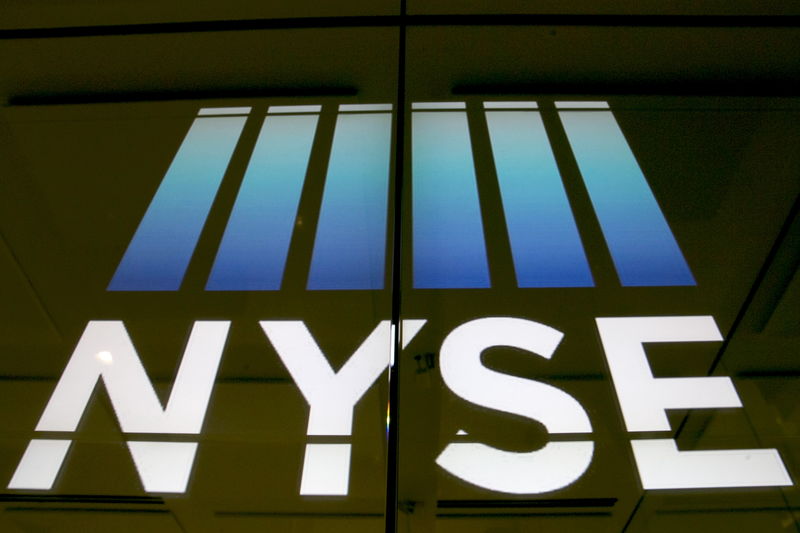Is this U.S.-China selloff a buy? A top Wall Street voice weighs in
By Geoffrey Smith
Investing.com -- The dollar fell to its lowest in nearly three months as Federal Reserve officials continued to play down inflation concerns. Commodity prices rose again. Elon Musk has a new antagonist to reckon with. Walmart (NYSE:WMT), Home Depot (NYSE:HD) and Macy’s all report earnings, and the International Energy Agency issues a dire warning on what’s needed to mitigate Climate Change. Here’s what you need to know in financial markets on Tuesday, May 18th.
1. Dollar hits three-month low as commodities shine again
The dollar fell to its lowest in nearly three months after fresh comments from influential Federal Reserve officials restored confidence in an extended period of ultra-loose monetary policy.
By 6:30 AM ET (1030 GMT), the dollar index, which tracks the greenback against a basket of half a dozen advanced economies was down 0.4% - a relatively large intraday move – at 89.775, notching its biggest losses against higher-yielding currencies such as the New Zealand dollar and sterling.
The move lower had been started by Fed vice-chair Richard Clarida, who said on Thursday that April’s higher-than-expected inflation numbers were no reason to start tapering the Fed’s asset purchases.
As is usually the case, the weaker dollar supported commodity prices, with agricultural products rising most: Coffee Futures in London gained over 3%, while U.S. Corn, Soybeans and Wheat all rose over 1%.
2. Michael Burry takes on Elon Musk
Elon Musk has a new antagonist, and it’s one with a cult following of his own.
Michael Burry, famous from his role in shorting mortgage-backed securities over a decade ago, has opened a short position on Tesla (NASDAQ:TSLA), according to a regulatory filing by his hedge fund Scion Asset Management.
Analysts estimated the value of the bet against Tesla at around $530 million. As it’s not detailed when the position was opened, it’s impossible to know whether the bet is in the money or not. However, Tesla’s shares lost nearly 7% in the first quarter, and are currently 35% off their peak. They lost over 2% on Monday but were flat in premarket trading.
Other 13-F filings with the SEC last night showed that Berkshire Hathaway (NYSE:BRKa) had trimmed or sold all of its exposure to U.S. banks with the exception of Bank of America (NYSE:BAC).
3. Stocks set to open higher; Walmart, Home Depot earnings in focus
U.S. stocks are set to open higher later, making good all of the losses they made on Monday.
By 6:30 AM ET (1030 GMT), Dow Jones futures were up 91 points, or 0.3%, while S&P 500 futures were also up 0.3% and Nasdaq 100 futures were outperforming with an 0.8% gain. The tech-heavy Nasdaq has been more sensitive to changes in sentiment about the path of interest rates in recent weeks due to the preponderance of young companies who still face a long road to sustained profitability.
Stocks likely to be in focus later include Home Depot, Walmart and Macy’s all of whom report before the opening. Housing starts and building permit data for April at 8:30 AM ET are expected to show the housing market still operating at a historically buoyant level.
4. European stocks hit new highs on rotation into value
European stocks ground out new post-pandemic highs, the cyclical-heavy national indices benefiting from the gradual shift in global investor preferences to value over growth.
The German DAX hit an all-time high as the country’s Constitutional Court effectively drew a line under the attempts of euro critics to stop the ECB’s purchases of government bonds.
The Italian FTSE MIB hit its highest since the pandemic erupted as heavyweight insurer and asset management Generali (MI:GASI) reported bumper earnings, while banks across the region rose as bond yields continued to drift back up toward zero. Eurozone GDP was confirmed as having shrunk 0.6% in the first quarter, as expected.
5. IEA warns on climate goals
The International Energy Agency said that the world needs to stop all new investment in oil, gas and coal if it is to meet the Paris Climate Accord’s targets on global warming.
The Paris-based think-tank, which was established to guarantee the energy security of advanced economies, said that anything less will mean that average global temperatures will rise by more than 1.5 degrees Celsius.
If embraced by western governments, the IEA’s warnings presage higher taxes on carbon emissions, and greater incentives for producing cleaner energy. However, the warnings come close to saying the goal is impossible, and may also embolden climate skeptics to push for weaker long-term targets on emissions reductions.
In more immediate energy-related news, the American Petroleum Institute releases its weekly assessment of U.S. crude and refined product stockpiles at 4:30 PM ET as usual.
